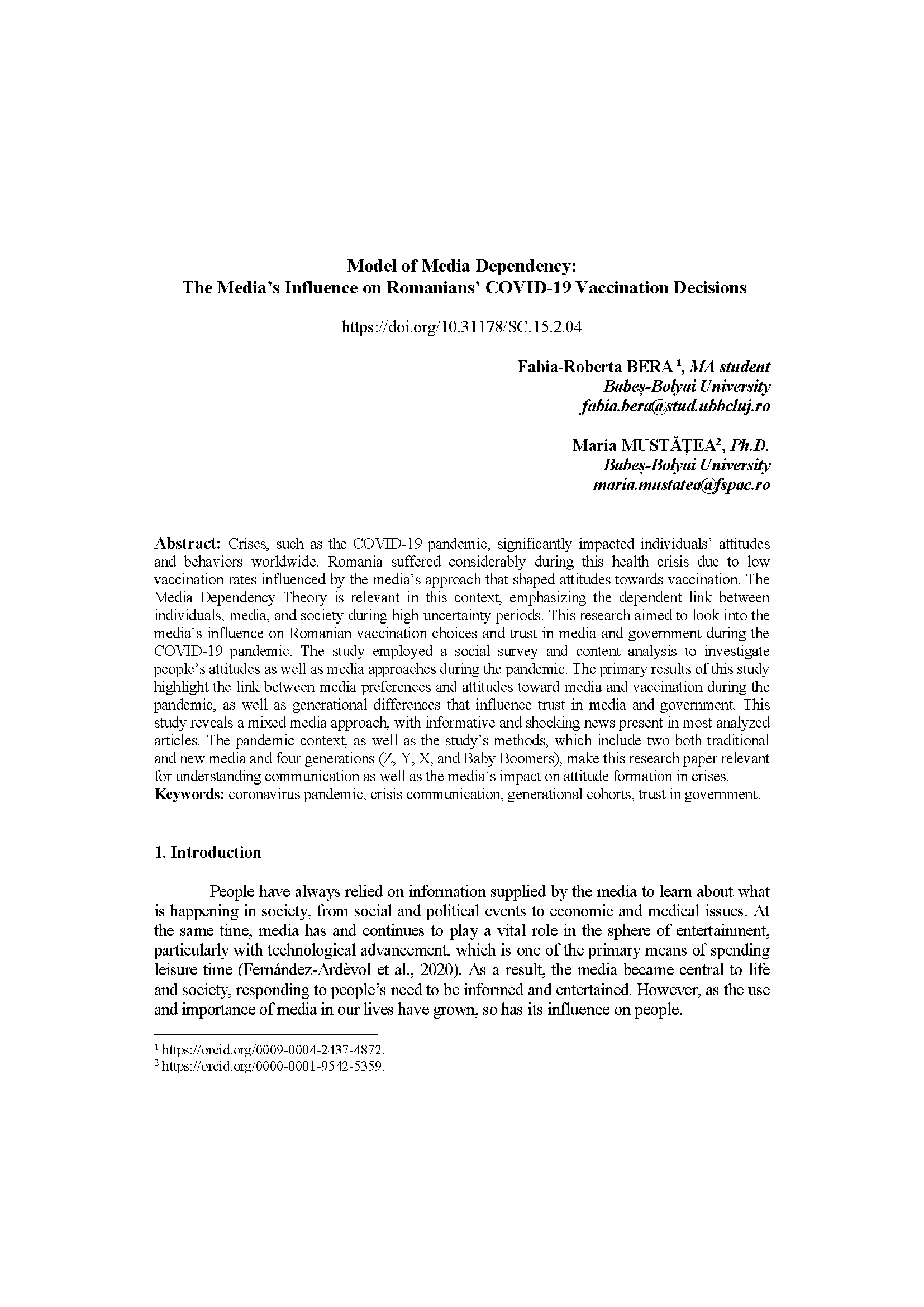Model of Media Dependency: The Media’s Influence on Romanians’ COVID-19 Vaccination Decisions
DOI:
https://doi.org/10.31178/SC.15.2.04Keywords:
coronavirus pandemic, crisis communication, generational cohorts, trust in governmentAbstract
Crises, such as the COVID-19 pandemic, significantly impacted individuals’ attitudes and behaviors worldwide. Romania suffered considerably during this health crisis due to low vaccination rates influenced by the media’s approach that shaped attitudes towards vaccination. The Media Dependency Theory is relevant in this context, emphasizing the dependent link between individuals, media, and society during high uncertainty periods. This research aimed to look into the media’s influence on Romanian vaccination choices and trust in media and government during the COVID-19 pandemic. The study employed a social survey and content analysis to investigate people’s attitudes as well as media approaches during the pandemic. The primary results of this study highlight the link between media preferences and attitudes toward media and vaccination during the pandemic, as well as generational differences that influence trust in media and government. This study reveals a mixed media approach, with informative and shocking news present in most analyzed articles. The pandemic context, as well as the study’s methods, which include two both traditional and new media and four generations (Z, Y, X, and Baby Boomers), make this research paper relevant for understanding communication as well as the media`s impact on attitude formation in crises.





